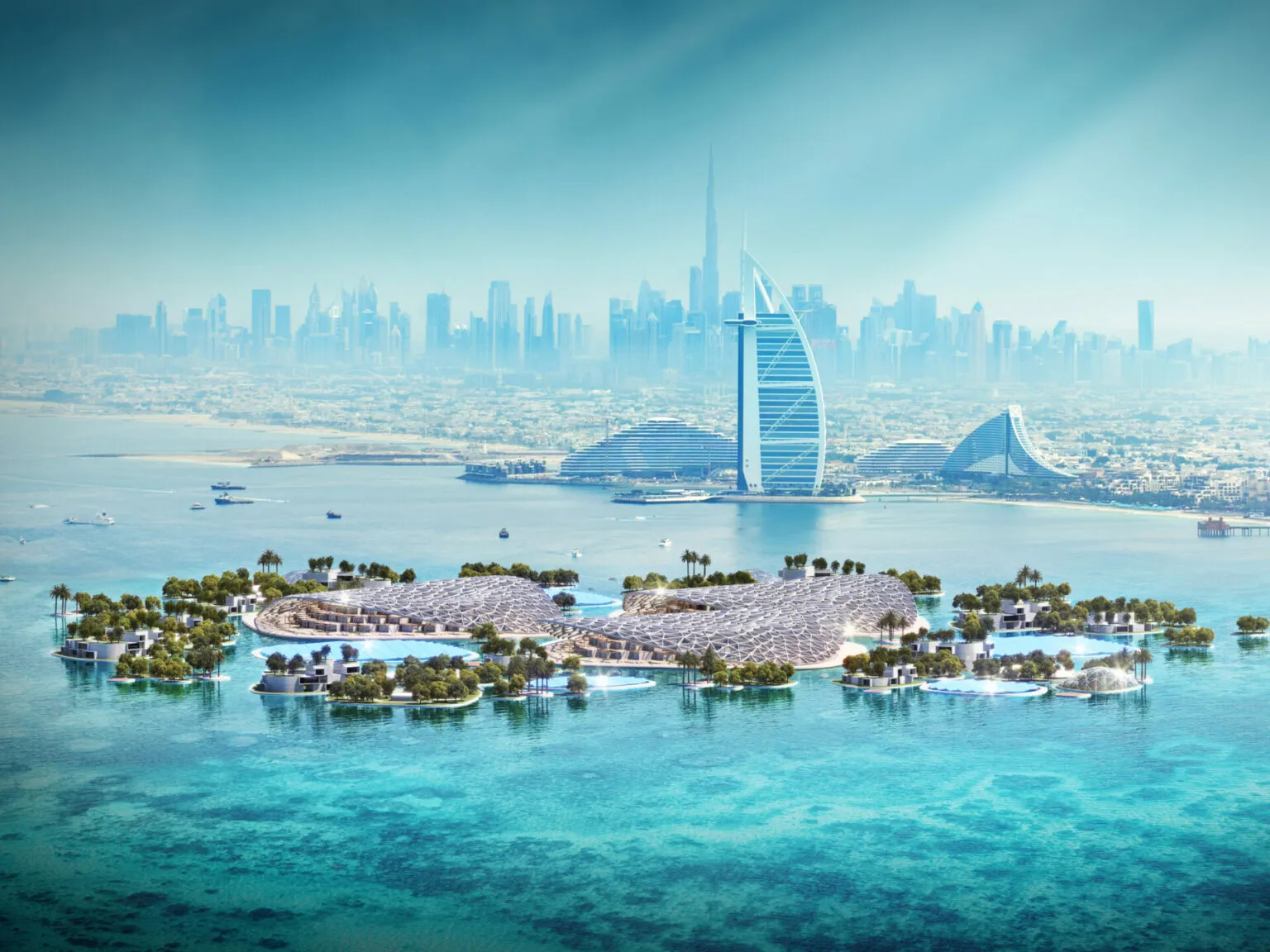A floating sustainable city where humans can live, work and study while supporting aquatic ecosystems. Soon this will become a reality in Dubai, as sustainable real estate company URB announced plans to design the world’s largest ocean restoration project. With a goal to create a sustainable eco-hub, Dubai Reefs envisions a future where the ocean and the city of Dubai blend in perfect harmony.

Beyond its iconic skyscrapers, extravagant shopping destinations, and upscale accommodations, Dubai has garnered significant recognition for its leadership in sustainability and green endeavors as well. The emirate has big plans to drastically shrink its carbon footprint by 2030, setting an example for other metropoles. The huge list of megaprojects such as zero-energy apartment building Vertical Cities and upcoming agritourism destination Agri Hub solidify the city's status as one of the greenest hubs in the Middle East.
Sea forests represent unique environments enriched by flourishing plants and a variety of species flourishing at the intersection of land and ocean
Coastal ecosystems, commonly known as sea forests, represent unique environments enriched by unique plants and a variety of species flourishing at the intersection of land and ocean. Unfortunately the degradation caused by oil drilling and reclamation projects has taken a toll on Dubai’s coastal ecology. In a positive step towards recovery, the Dubai Reefs initiative seeks to revive and restore these vital ecosystems.

At the heart of the floating city a marine institute will be found serving as living lab and educational facility, but will also be responsible for the construction of the world’s largest artificial reef. Covering an expansive area of 200 square meters, the reef endeavors to create a thriving habitat for over one billion corals and one hundred million mangrove trees, making it the most diverse man-made reef ever to be made. Through the utilization of 3D printing techniques, underwater landscapes will be mimicked by using biomaterials to provide a suitable environment for microalgae, just like their biological coral counterparts.

Next to ecological restoration, the project will provide distinctive marine ecotourism encounters through a range of floating eco lodges, all powered by 100% renewable energy derived from various solar and hydropower sources. Considering the rising sea levels in the coming decades, Dubai Reefs can set an example by creating a harmonious relationship between humans and their surrounding ecosystem.


Comments (0)
Share your thoughts and join the technology debate!
Be the first to comment!